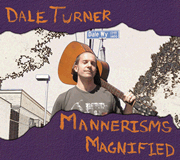|
Digitizing The Record Industry
Retail Realities & the Road to Profits
By The G-Man, 

MusicDish Network Sponsor

|
If you're young enough, all you know is digital music. Forget about
records. Or vinyl. Or eight-tracks. Or even cassettes. To these people,
the brouhaha over digital rights management and pay-per-download models
seems silly. And the changeover from physical products to sound files
isn't even an issue for them.
Yet there is a multibillion-dollar business that is
turning itself inside-out because of computerized data-capture of
sonics (or whatever the new buzzwords may be to describe how machines
glom onto sounds and let humans share them).
People On The Inside
The National Association of Record Industry Professionals
(NARIP) assembled a panel of experts on March 30th who live and
breathe digital retailing of music. Brad Duea is President
of Roxio's Napster ("the new Napster"). Kevin Ertell is Vice
President of Online Operations for Tower Records. David Micko
has the coolest title: Innovation Evangelist, Consumer Technology
and Strategic Services for Best Buy. And Mark Tindle is Sr.
VP and West Coast General Manager for Nielsen Music (which includes
Nielsen SoundScan and Nielsen Broadcast Data Systems).
The panelists were in-the-know and willing to share
their insights, yet there was an air of tension that began building
after the first few minutes of the discussion. Why? Well, because
of the focus of the panel on retail, both brick-and-mortar and digital
distribution. We're talking paying customers here. (But remember
that the tension is building -- more on this in a moment.)
Some highlights:
* Napster's Duea, extremely upbeat about the new technologies
that are seemingly introduced every week, noted that their online
sales were actually "in line with traditional physical sales." In
addition to moving singles and albums, Napster is licensing its
name and in some cases helping to market a large line of products,
everything from blank recording media to prepaid phone cards.
* Tower's Ertell reflects the optimism of many who
look forward to even more exciting changes in the industry. "Global
sales are growing," he notes, and points out that price points for
singles, albums, and "hot tracks" vs. back-catalog items have yet
to be determined. He also identified an interesting trend, that
%19 of digital sales are classical, which represents substantial
growth.
* Best Buy's Micko echoed the optimism (redoubled
it, actually) by pointing out that "Technologically, we're close
to the celestial jukebox... the technology is there," he said, but
added "whether there's a business model that works is another question."
On the other hand, he notes that the old-fashioned large record
company business model "cannot exist" any longer. He drew appreciative
laughter when answering NARIP President and panel moderator Tess
Taylor's question about the profits that retailers achieve by selling
prime shelf space: "Shelf space allotment is like crack cocaine
to Best Buy," he said.
* Nielsen's Tindle drew the biggest laugh of the evening
when he followed the comments about the feasibility of the celestial
jukebox by saying, "I just want a cell phone that works in Cahuenga
Pass." The nature of his business is to observe and measure consumer
buying patterns, so his view that the record industry business is
"still being driven by physical sales" was surprising to some. "There
were 2.1 million paid downloads of music last week," he said. "It's
growing, but the overall sales are still relatively small." According
to him and to Nielsen SoundScan figures, there have been more than
25 million legitimate PAID digital downloads in the first quarter
of 2004.
The Dam Bursts
Somewhere around this moment, the tension had built
up to a point of no return. It was only a question of who would
speak first. It was Dave Adelson, Managing Editor of HITS magazine
and E! Entertainment reporter who finally acknowledged what was
on everybody's mind...
"You haven't addressed the issue of peer-to-peer music
distribution," he pointed out. "You talk about 2.1 million paid
downloads, but there are literally 10 billion P-to-P downloads going
on."
"You mean stealing," said attorney Susan Rabin. "You
tell 'em, Dave," said several people, and the packed ballroom was
suddenly quite noisy.
Taylor let the points be made and then firmly guided
the discussion back to the topic of "retail, which means legal sales."
The Real Bottom Line
With a wonderful mix of ideas, questions, predictions,
and suggestions about the future of music distribution in a computerized
era, the "Digitizing the Record Industry" panel was a hit.
 Provided
by the MusicDish
Network. Copyright © Tag
It 2004 - Republished with Permission Provided
by the MusicDish
Network. Copyright © Tag
It 2004 - Republished with Permission
|

